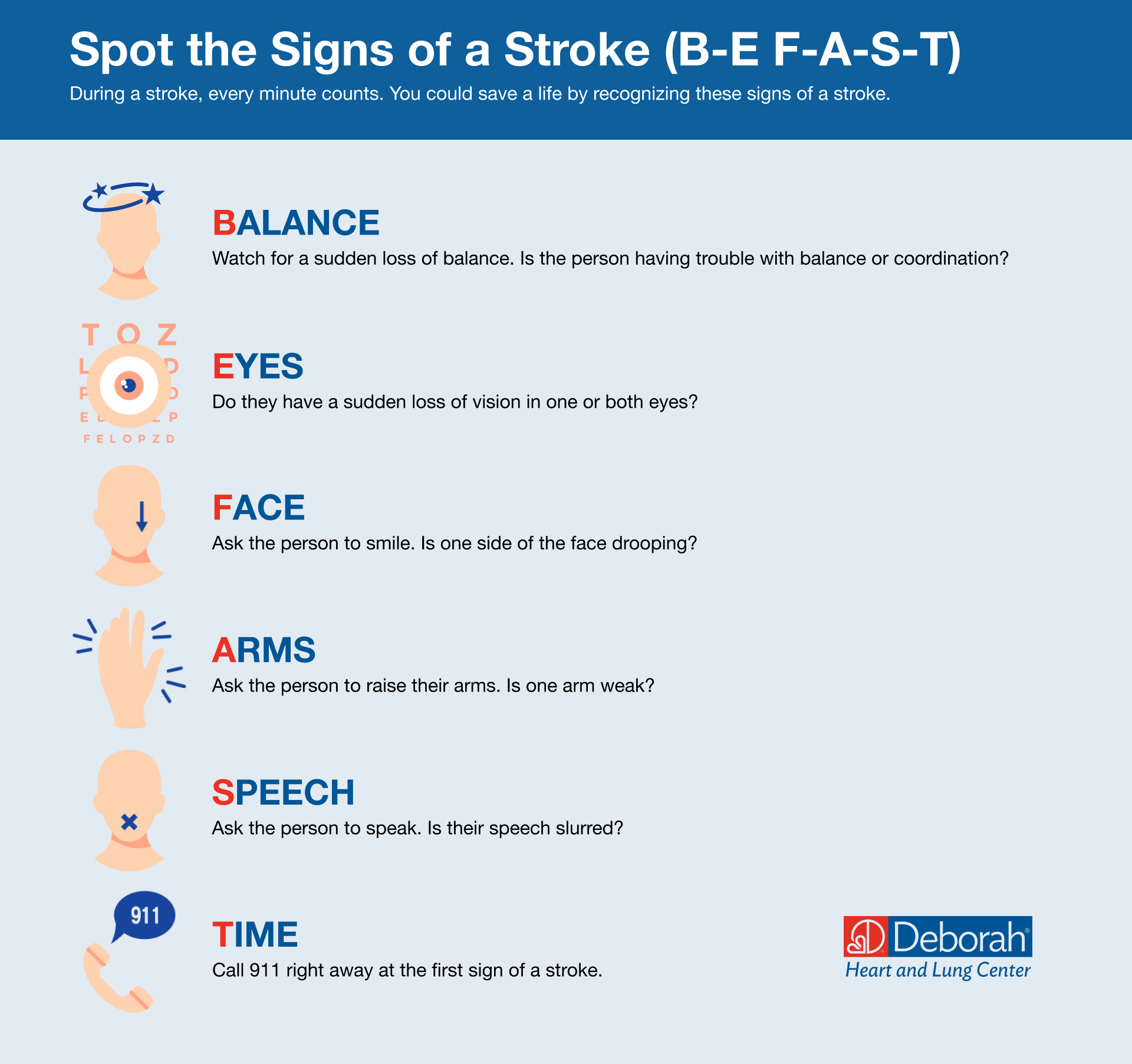Stroke
A stroke occurs when blood flow to a part of the brain stops. There are two major types of stroke:
- Ischemic stroke
- Hemorrhagic stroke
Ischemic stroke occurs when a blood vessel is blocked by a blood clot. Ischemic strokes can also be caused by arterial plaque.
A hemorrhagic stroke occurs when a blood vessel in the brain becomes weak and bursts open causing blood to leak into the brain.
Risk factors for strokes include:
- High blood pressure
- Irregular heartbeat
- Diabetes
- Family history of stroke
- Being male
- High cholesterol
- Increasing age
- Obesity
- History of prior stroke or TIA

Signs & Symptoms
Signs and symptoms of a stroke include:
- Headache
- Change in alertness
- Changes in hearing or taste
- Changes that affect touch and the ability to feel pain, pressure, or different temperatures
- Confusion or loss of memory
- Problems swallowing
- Problems writing or reading
- Dizziness or abnormal feeling of movement
- Eyesight problems, such as decreased vision, double vision, or total loss of vision
- Lack of control over the bladder or bowels
- Loss of balance or coordination, or trouble walking
- Muscle weakness in the face, arm, or leg on one side
- Numbness or tingling on one side of the body
- Personality, mood, or emotional changes
- Trouble speaking or understanding others
Diagnosis
A Deborah physician will perform an exam to:
- Check for problems with vision, movement, feeling, reflexes, understanding, or speaking
- Listen to the carotid arteries in the neck with a stethoscope for an abnormal sound, called a bruit, which is caused by abnormal blood flow
- Check for high blood pressure
These additional tests will likely be ordered:
- CT scan of the brain to determine if there is any bleeding
- MRI of the brain to determine the location of the stroke
- Angiogram of the head to look for a blood vessel that is blocked or bleeding
- Carotid ultrasound to see if arteries in the neck have narrowed
- Echocardiogram to see if the stroke could have been caused by a blood clot from the heart
- Magnetic resonance angiography (MRA) or CT angiography to check for abnormal blood vessels in the brain
